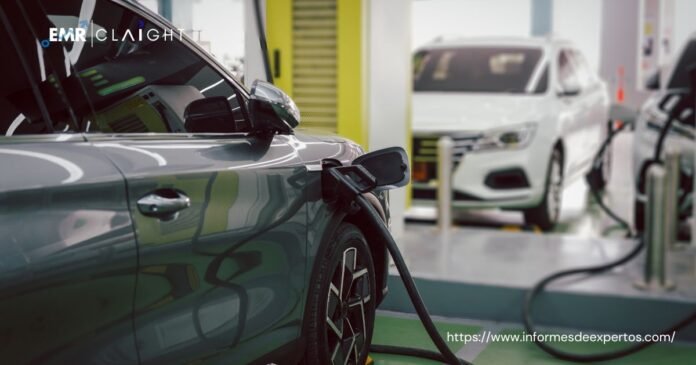The Mexico hybrid electric vehicle (HEV) market represents a significant segment within the automotive industry, characterized by the growing adoption of environmentally friendly and fuel-efficient vehicles. With increasing awareness of environmental issues and government incentives to promote clean transportation solutions, Mexico is witnessing a rise in the demand for hybrid electric vehicles as consumers seek alternatives to traditional internal combustion engine vehicles.
Market Overview
Hybrid electric vehicles combine an internal combustion engine with an electric propulsion system, offering improved fuel efficiency, reduced emissions, and enhanced performance compared to conventional gasoline or diesel-powered vehicles. In Mexico, hybrid electric vehicles have gained popularity among environmentally conscious consumers, urban commuters, and fleet operators seeking to reduce their carbon footprint and operating costs.
Historical Context
The adoption of hybrid electric vehicles in Mexico is part of a global trend towards sustainable transportation solutions driven by concerns about air pollution, climate change, and energy security. While hybrid electric vehicles have been available in the international market for several decades, their uptake in Mexico has been relatively recent, reflecting evolving consumer preferences, infrastructure development, and government policies supporting clean mobility initiatives.
Market Dynamics
The Mexico hybrid electric vehicle market is influenced by various factors, including consumer preferences, government regulations, infrastructure development, and economic conditions. Rising fuel prices, urban congestion, and environmental concerns are driving demand for hybrid electric vehicles as consumers seek more fuel-efficient and environmentally friendly alternatives to traditional gasoline and diesel vehicles.
Furthermore, government incentives, such as tax incentives, subsidies, and rebates, play a crucial role in promoting the adoption of hybrid electric vehicles in Mexico. Federal and local government initiatives aimed at reducing greenhouse gas emissions and promoting sustainable transportation solutions incentivize consumers to purchase hybrid electric vehicles through financial incentives and preferential treatment, such as access to restricted traffic zones and reduced registration fees.
Market Size and Trends
In 2023, Mexico’s hybrid electric vehicle market reached a value of around 64.16 thousand units. The market is expected to grow at a compound annual growth rate (CAGR) of 8.5% between 2024 and 2032, reaching a value of 133.7 thousand units in 2032. This growth trajectory reflects increasing consumer awareness of the benefits of hybrid electric vehicles, advancements in hybrid technology, and supportive government policies driving market expansion.
Moreover, emerging trends in the Mexico hybrid electric vehicle market include the introduction of new hybrid models by automotive manufacturers, expanding charging infrastructure networks, and technological innovations aimed at improving the performance, range, and affordability of hybrid electric vehicles. As battery technology improves and production costs decline, hybrid electric vehicles are becoming more accessible to a broader range of consumers in Mexico.
Key Players
The Mexico hybrid electric vehicle market is served by a variety of automotive manufacturers, both domestic and international, offering a range of hybrid electric vehicle models to meet diverse consumer needs and preferences. Some of the key players in the Mexico hybrid electric vehicle market include:
- Toyota Motor Corporation: A global leader in hybrid electric vehicle technology, Toyota offers a wide range of hybrid models, including the Prius, Corolla Hybrid, and RAV4 Hybrid, which enjoy popularity among Mexican consumers for their fuel efficiency, reliability, and advanced technology features.
- Honda Motor Company: Another major player in the Mexico hybrid electric vehicle market, Honda manufactures hybrid models such as the Insight, Accord Hybrid, and CR-V Hybrid, catering to consumers seeking environmentally friendly and technologically advanced vehicles.
- Nissan Motor Corporation: With a strong presence in the Mexican automotive market, Nissan offers hybrid electric vehicles such as the Nissan LEAF, a fully electric vehicle, and the Nissan Kicks e-Power, a hybrid electric vehicle featuring innovative powertrain technology for enhanced fuel efficiency and performance.
- Volkswagen Group: As a leading automotive manufacturer, Volkswagen Group produces hybrid electric vehicles under its Volkswagen and Audi brands, including the Volkswagen Golf GTE and Audi Q5 e-tron, offering consumers a combination of electric mobility and traditional combustion engine performance.
Future Outlook
The future of the Mexico hybrid electric vehicle market holds significant promise, driven by factors such as increasing environmental awareness, supportive government policies, and technological advancements in hybrid electric vehicle technology. As the market continues to grow, automotive manufacturers are expected to introduce new hybrid models with improved performance, range, and affordability, catering to the evolving needs and preferences of Mexican consumers.
Furthermore, investments in charging infrastructure, public awareness campaigns, and collaborative efforts between government, industry, and civil society stakeholders will play a crucial role in accelerating the adoption of hybrid electric vehicles and promoting sustainable mobility solutions in Mexico. By embracing hybrid electric vehicles as a viable transportation option, Mexico can reduce its dependence on fossil fuels, mitigate air pollution, and contribute to global efforts to combat climate change.





